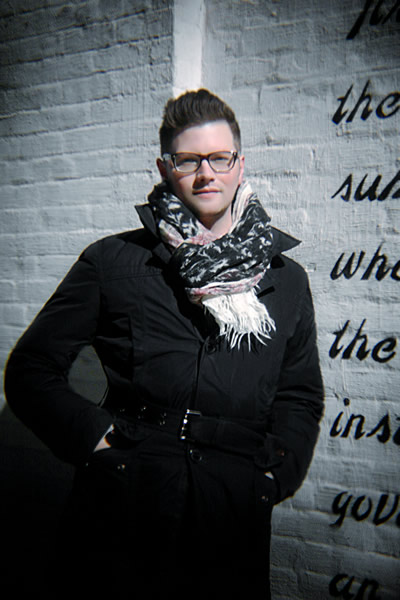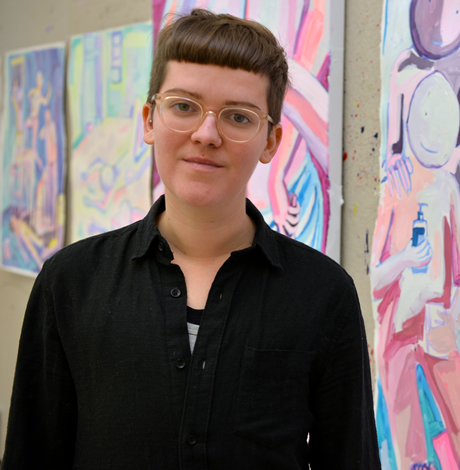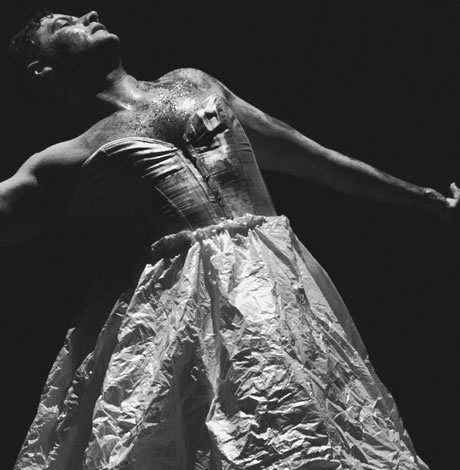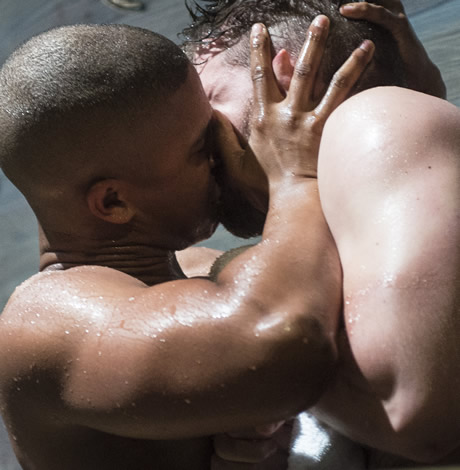Arts & Entertainment
Queery: John Moletress
The theater visionary answers 20 gay questions
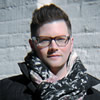
Local theater regulars know former actor John Moletress’s name. But like many creative types, he’s grown restless and is pursuing new artistic vistas. Last summer he started force/collision, an interdisciplinary performance ensemble based in Washington. It kicked off with a piece called “Collapsing Silence” at the Source Theatre. Next month his company will unveil “The Nautical Yards,” a 60-minute site-specific show at the Washington Navy Yard that will tell of two lovers separated by war and sea.
“I think it’s important that we create a large script between the arts and work more holistically,” the 34-year-old Pottsgrove, Pa., native says. “I’ve worked in traditional theater forms, been in lots of plays and musicals, but when we band together it opens up the door to explore different forums and takes us into the next generation of making art together.”
Moletress says some of the traditional forms feel somewhat exhausted to him.
“When you run out of a way to tell a story by speaking it, I think there are other ways to do it,” he says. “Like with dance … when you run out of words, there’s a certain collective memory our body has that we can share with movement. Our bodies become storehouses for our memories.”
Moletress studied acting in college, both in Allentown, Pa., and during graduate school at the University of Tennessee. He spent two years in London in the ‘90s studying acting and modern dance and worked in regional theaters around New York City where he lived in the early ‘00s. He came to Washington in 2008 after two years working as an artistic director at a company in Pennsylvania. In 2009, he started Factory 449, a Helen Hayes-winning project from which he’s since parted ways. Force/collision (force-collision.org) was started with a grant he got through Source Theatre.
Moletress lives in D.C.’s Navy Yard area and enjoys reading — “I have hundreds of books in my apartment” — and decoupage in his free time. (Photo courtesy Moletress)
How long have you been out and who was the hardest person to tell?
Pretty much since high school. Before the Grindr phenomena, we had AOL chat rooms. It was a fun little platform for meeting other high school guys who were for the most part, not out. I can’ t say I really made the choice to come out, so much as outed myself with a crumpled up page ripped from an International Male catalogue I left in my pants pocket. My mother was doing laundry that day. I don’t think she was really surprised, given that my early obsessions included Cheryl Tiegs workout videos and musical theater.
Who’s your LGBT hero?
Christopher Isherwood.
What’s Washington’s best nightspot, past or present?
Does my couch count? Honestly, wherever my friends are. I adore them.
Describe your dream wedding.
No, thank you. Although if I ever found myself wearing a white dress, I’d most likely be standing on a cliff somewhere on the Galway coast of Ireland, contemplating two choices.
What non-LGBT issue are you most passionate about?
Genocide and reconciliation. My friend, Erik Ehn, is a playwright who founded an annual conference to investigate theatre on this subject. He writes about collective trauma. I’ll be directing the premiere of his new play “Shape” which infuses the stories of blacks in 1900 Ambrose Park with the 1921 Tulsa Race Riot.
What historical outcome would you change?
This is a challenging question. I believe we are where and who we are because of our histories. I would negotiate peace and dialogue before violence.
What’s been the most memorable pop culture moment of your lifetime?
Manic Panic hair dye and Siouxsie Sioux on high school Sundays with like-minded outcasts.
On what do you insist?
Pausing and breathing. Oh, and Diet Pepsi.
What was your last Facebook post or Tweet?
@soulographiedesignmeetings at The New Schoolpic.twitter.com
If your life were a book, what would the title be?
I’d have to look to Jackie Collins for inspiration. Perhaps, “The World Is Full of Married Men” or “Lady Boss.”
If science discovered a way to change sexual orientation, what would you do?
Either run screaming or mount Tom Brady.
What do you believe in beyond the physical world?
Connectivity. Universal law. Energy and frequency. Love.
What’s your advice for LGBT movement leaders?
Persevere. Trust your instincts. If one door closes, open another.
What would you walk across hot coals for?
My friends. To have seen Velvet Underground perform live.
What LGBT stereotype annoys you most?
I’m sure I pretty much fit all of them at one point or another. However, I wish we could all be more open to the possibilities of gender duality. Regardless of whether people think I swing more toward my feminine or my masculine side, nothing turns me off more than men who state they are “straight acting” when they like to play leap frog with other men.
What’ s your favorite LGBT movie?
“Mommie Dearest.” The gay man’ s guide to opera acting and OCD.
What’s the most overrated social custom?
Utensils.
What trophy or prize do you most covet?
Bjork’s Polar Music Prize. I wish I could be as brilliant as her.
What do you wish you’d known at 18?
That I was going to live past 25. I certainly didn’t behave that way.
Why Washington?
I’m attracted to the sizzle of American politics. The Hill staffers are cute, too. I dated one for a while. Moreover, this IS a theater town and the resources here for my profession are overwhelming. Source Theatre/Cultural Development Corporation has played an integral part in getting my work seen. I owe a lot to them, especially Jenny McConnell Frederick.
a&e features
Transmission DC breathes new life into a storied sound space
A fresh home for boundary-pushing culture on H Street

Late last year, phoenix-style, a fresh home for boundary-pushing culture arose on the H Street corridor. Transmission DC – a queer, trans, and POC-owned, operated, and centered community-focused venue – powered on in the former home to the Rock & Roll Hotel (famously, not a hotel, but very much rock & roll). Transmission (1353 H St., N.E.) arrives secure in its mandate – or even birthright – to provide a place to celebrate creativity and music through a lens of inclusivity and respect.
Transmission’s team brings experience, but also representation. Owners/partners Kabir Khanna (who is also programming director), Katii B, Ellie McDyre, and Kelli Kerrigan together previously managed 618 productions, a venue in Chinatown, crafting “some of D.C.’s freakiest parties, raves, and mosh pits” they note.
They packed up operations last fall to a space curated specifically for D.C.’s underground music and culture scene, building their efforts in Chinatown to bring in more fans in queer and POC circles.
Transmission, Khanna points out, is built on DIY values. In the music scene, DIY means that promoters and organizers – often disconnected from the mainstream and part of marginalized communities – build shows and programs collaboratively, but independently from institutions, supporting each other as smaller, independent venues close. Here, Transmission aims to ensure that those putting together these underground inclusive shows have a more permanent and stable home, can have access to resources, and can provide more sustainable income to artists. “We’re trying to get more people to support and enjoy the music, and also give artists and organizers within the DIY community more structure and a larger cut,” says Khanna.
Khanna also notes that Transmission operates “under the principles of safety, inclusivity, and respect.” McDyre added that even at venues that claim inclusivity, that statement might not take place in practice. We’re “not just pitting up a rainbow flag,” says McDyre, but as some of the owners are trans and POC, audiences can see themselves reflected at the top.
Much like the DIY nature of the music community, the Transmission owners brought a DIY ethos to turning around their space.
In March 2020 – the height of COVID lockdowns – Rock & Roll Hotel suddenly shuttered, though not due to the pandemic; instead, the venue claimed that decreasing sales and increasing competition led to the closure. For 14 years, it was the central spot for cheap beer and lesser-known and celebrated acts. The space stood vacant for more than five years, until Transmission turned the power back on.
“When we got into the space, it was effectively abandoned for years,” says Khanna. “There was a ton of mold, and paint primer covering all surfaces. It was nearly falling apart.” Khanna noted that many music venues like this one, regardless of how well it was maintained, “get the shit kicked out of it,” given the nature of shows. The team called in mold removal contractors, ripped up most of the floorboards, and started fresh.
Transmission’s first floor is styled as a stripped-down black box: the better to take in the music. “It’s minimal on purpose to act as a canvas for set design and music,” without a specific aesthetic, says Khanna. Moving upstairs, the second floor has been opened up, removing some walls, and now has a larger dance area than the first floor. Beyond the first two performance levels, and a holdover from Rock & Roll Hotel, is the rooftop. Though without a stage, the rooftop space is filled with murals splashed across the walls, with a full bar. Transmission’s current capacity is 496, but the team is looking to grow that number. Transmission will also leverage the full kitchen that Rock & Roll Hotel operated, bringing in Third Hand Kitchen to offer a variety of food, including vegan and vegetarian options.
Khanna pointed out an upcoming show reflective of Transmission’s inclusive ethos: Black Techo Matters on Feb. 27. The event is set to be “a dynamic, collaborative night of underground electronic music celebrating Black History Month.” Khanna says that techno came from Black music origins, and this event will celebrate this genesis with a host of artists, including DJ Stingray 313, Carlos Souffront, and Femanyst.
Movies
Moving doc ‘Come See Me’ is more than Oscar worthy
Poet Laureate Andrea Gibson, wife negotiate highs and lows of terminal illness

When Colorado Poet Laureate Andrea Gibson died from ovarian cancer in the summer of 2025, the news of their passing may have prompted an outpouring of grief from their thousands of followers on social media, but it was hardly a surprise.
That’s because Gibson – who had risen to both fame and acclaim in the early 2000s with intense live performances of their work that made them a “superstar” at Poetry Slam events – had been documenting their health journey on Instagram ever since receiving the diagnosis in 2021. During the process, they gained even more followers, who were drawn in by the reflections and explorations they shared in their daily posts. It was really a continuation, a natural evolution of their work, through which their personal life had always been laid bare, from the struggles with queer sexuality and gender they experienced in their youth to the messy relationships and painful breakups of their adult life; now, with precarious health prohibiting a return to the stage, they had found a new platform from which to express their inner experience, and their fans – not only the queer ones for whom their poetry and activism had become a touchstone, but the thousands more who came to know them through the deep shared humanity that exuded through their online presence – were there for it, every step of the way.
At the same time, and in that same spirit of sharing, there was another work in progress around Gibson: “Come See Me in the Good Light,” a film conceived by their friends Tig Notaro and Stef Willen and directed by seasoned documentarian Ryan White (“Ask Dr. Ruth”, “Good Night, Oppy”, “Pamela, a Love Story”), it was filmed throughout 2024, mostly at the Colorado home shared by Gibson and their wife, fellow poet Megan Falley, and debuted at the 2025 Sundance Film Festival before a release on Apple TV in November. Now, it’s nominated for an Academy Award.
Part life story, part career retrospective, and part chronicle of Gibson and Falley’s relationship as they negotiate the euphoric highs and heartbreaking lows of Gibson’s terminal illness together, it’s not a film to be approached without emotional courage; there’s a lot of pain to be vicariously endured, both emotional and physical, a lot of hopeful uplifts and a lot of crushing downfalls, a lot of spontaneous joy and a lot of sudden fear. There’s also a lot of love, which radiates not only from Gibson and Falley’s devotion and commitment to being there for each other, no matter what, but through the support and positivity they encounter from the extended community that surrounds them. From their circle of close friends, to the health care professionals that help them navigate the treatment and the difficult choices that go along with it, to the extended family represented by the community of fellow queer artists and poets who show up for Gibson when they make a triumphant return to the stage for a performance that everyone knows may well be their last, nobody treats this situation as a downer. Rather, it’s a cause to celebrate a remarkable life, to relish friendship and feelings, to simply be present and embrace the here and now together, as both witness and participant.
At the same time, White makes sure to use his film as a channel for Gibson’s artistry, expertly weaving a showcase for their poetic voice into the narrative of their survival. It becomes a vibrant testament to the raw power of their work, framing the poet as a seminal figure in a radical, feminist, genderqueer movement which gave voice to a generation seeking to break free from the constraints of a limited past and imagine a future beyond its boundaries. Even in a world where queer existence has become – yet again – increasingly perilous in the face of systemically-stoked bigotry and bullying, it’s a blend that stresses resilience and self-empowerment over tragedy and victimhood, and it’s more than enough to help us find the aforementioned emotional courage necessary to turn what is ultimately a meditation on dying into a validation of life.
That in itself is enough to make “Come See Me in the Good Light” worthy of Oscar gold, and more than enough to call it a significant piece of queer filmmaking – but there’s another level that distinguishes it even further.
In capturing Gibson and Falley as they face what most of us like to think of as an unimaginable future, White’s quietly profound movie puts its audience face-to-face with a situation that transcends all differences not only of sexuality or gender, but of race, age, or economic status as well. It confronts us with the inevitability few of us are willing to consider until we have to, the unhappy ending that is rendered certain by the joyful beginning, the inescapable conclusion that has the power to make the words “happily ever after” feel like a hollow promise. At the center of this loving portrait of a great American artist is a universal story of saying goodbye.
Yes, there is hope, and yes, good fortune often prevails – sometimes triumphantly – in the ongoing war against the cancer that has come to threaten the palpably genuine love this deeply-bonded couple has found together; but they (and we) know that, even in the best-case scenario, the end will surely come. All love stories, no matter how happy, are destined to end with loss and sorrow; it doesn’t matter that they are queer, or that their gender identities are not the same as ours – what this loving couple is going through, together, is a version of the same thing every loving couple lucky enough to hold each other for a lifetime must eventually face.
That they meet it head on, with such grace and mutual care, is the true gift of the movie.
Gibson lived long enough to see the film’s debut at Sundance, which adds a softening layer of comfort to the knowledge we have when watching it that they eventually lost the battle against their cancer; but even if they had not, what “Come See Me in the Good Light” shows us, and the unflinching candor with which it does so, delivers all the comfort we need.
Whether that’s enough to earn it an Oscar hardly matters, though considering the notable scarcity of queer and queer-themed movies in this year’s competition it might be our best shot at recognition.
Either way, it’s a moving and celebratory film statement with the power to connect us to our true humanity, and that speaks to a deeper experience of life than most movies will ever dare to do.
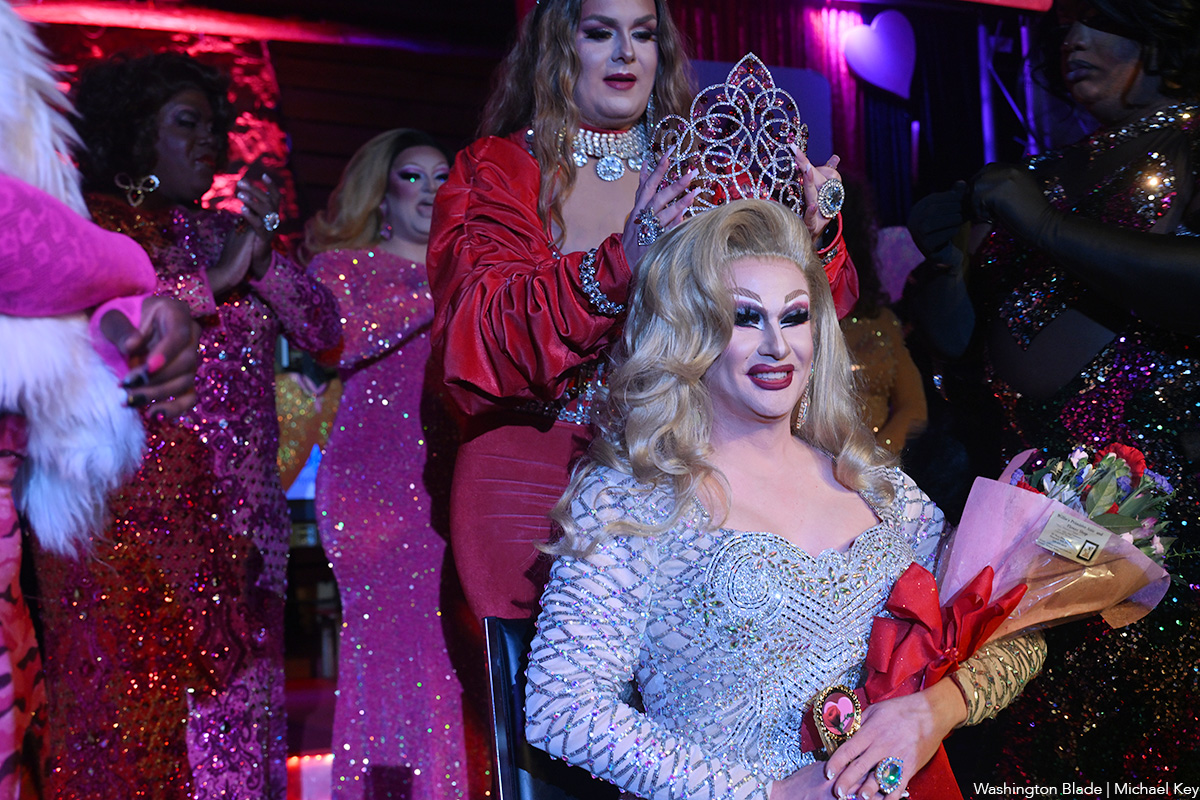
The 44th annual Queen of Hearts pageant was held at The Lodge in Boonsboro, Md. on Friday, Feb. 20. Six contestants vied for the title and Bev was crowned the winner.
(Washington Blade photos by Michael Key)
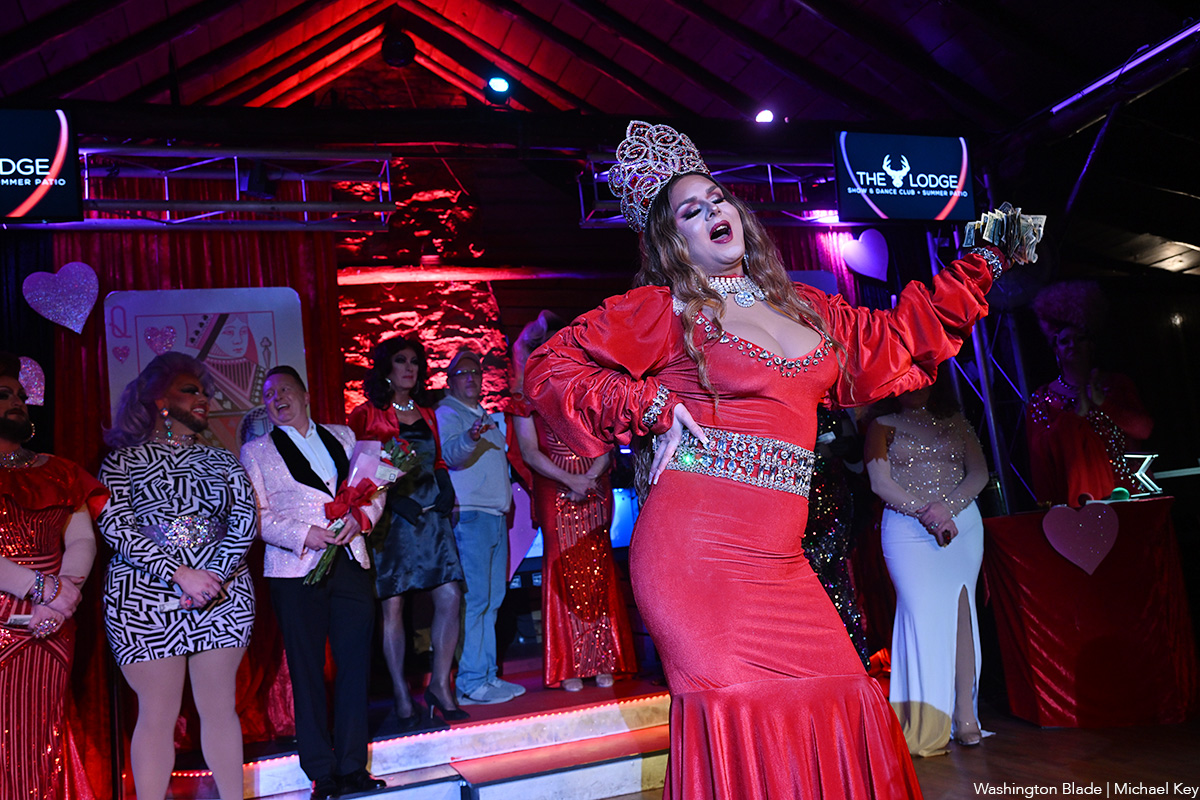
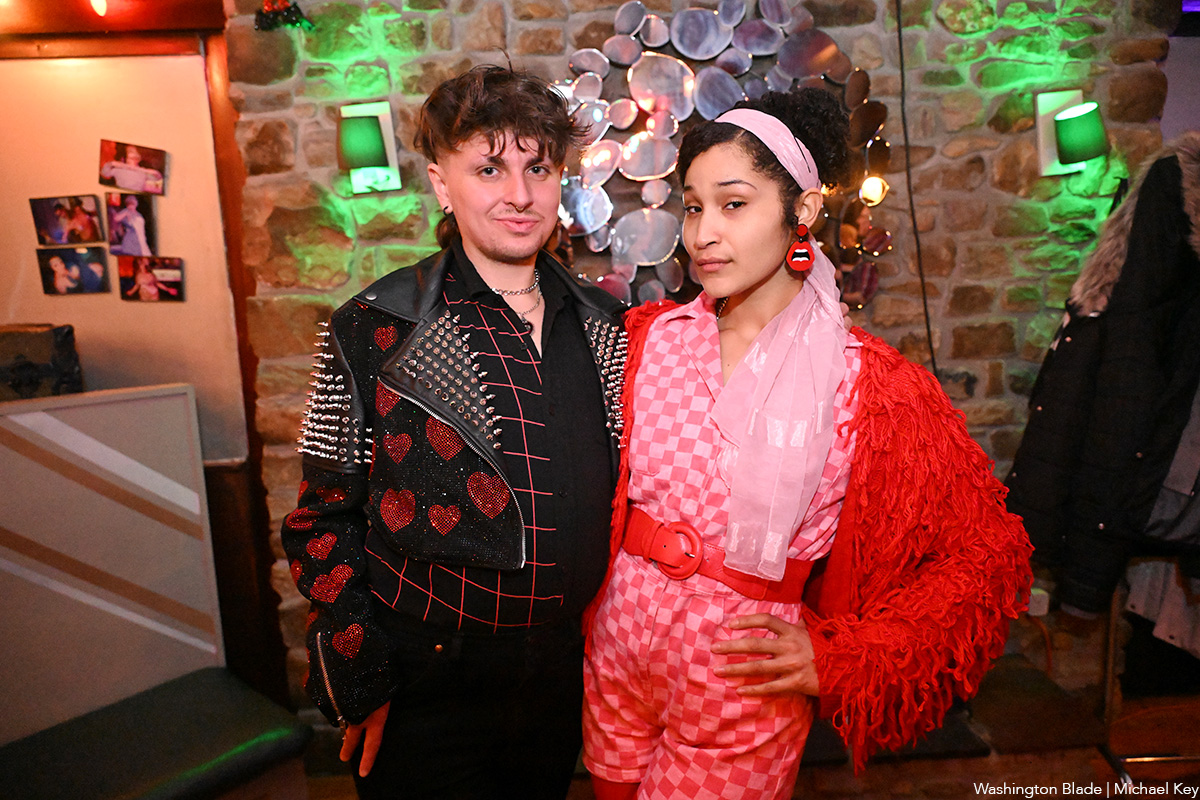
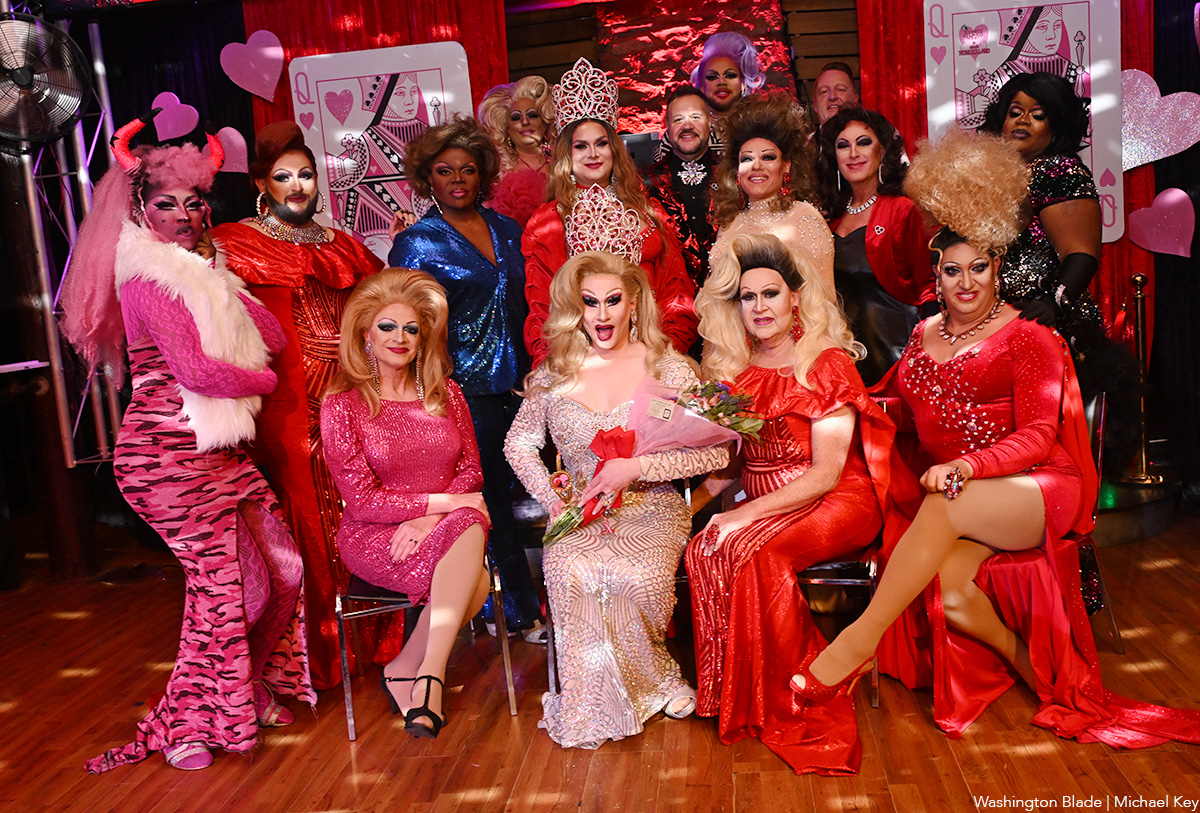
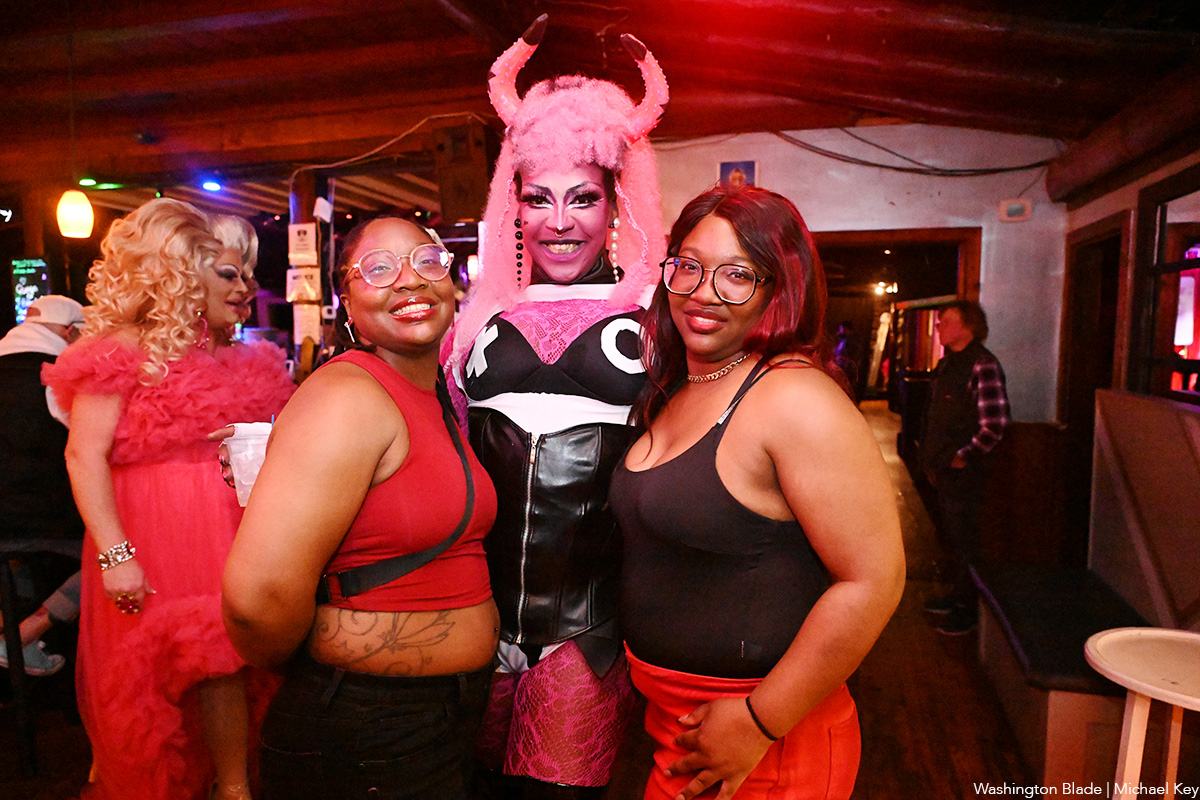
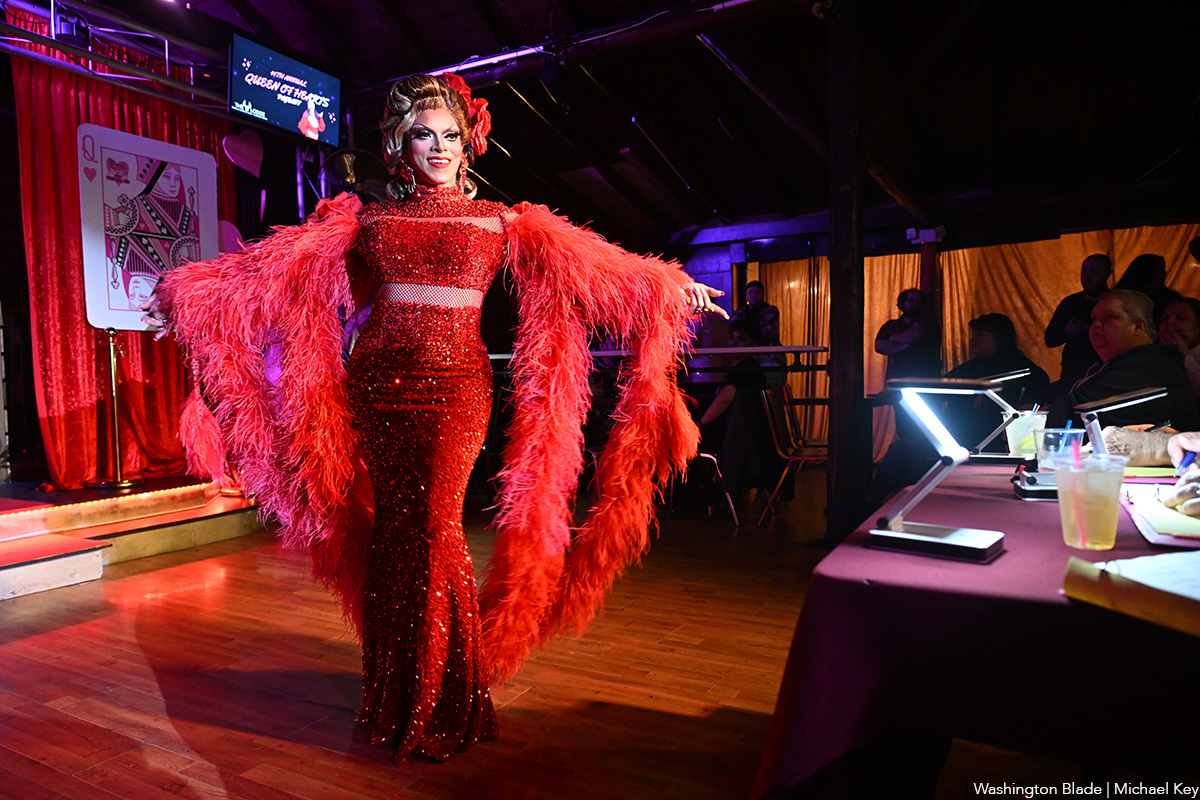
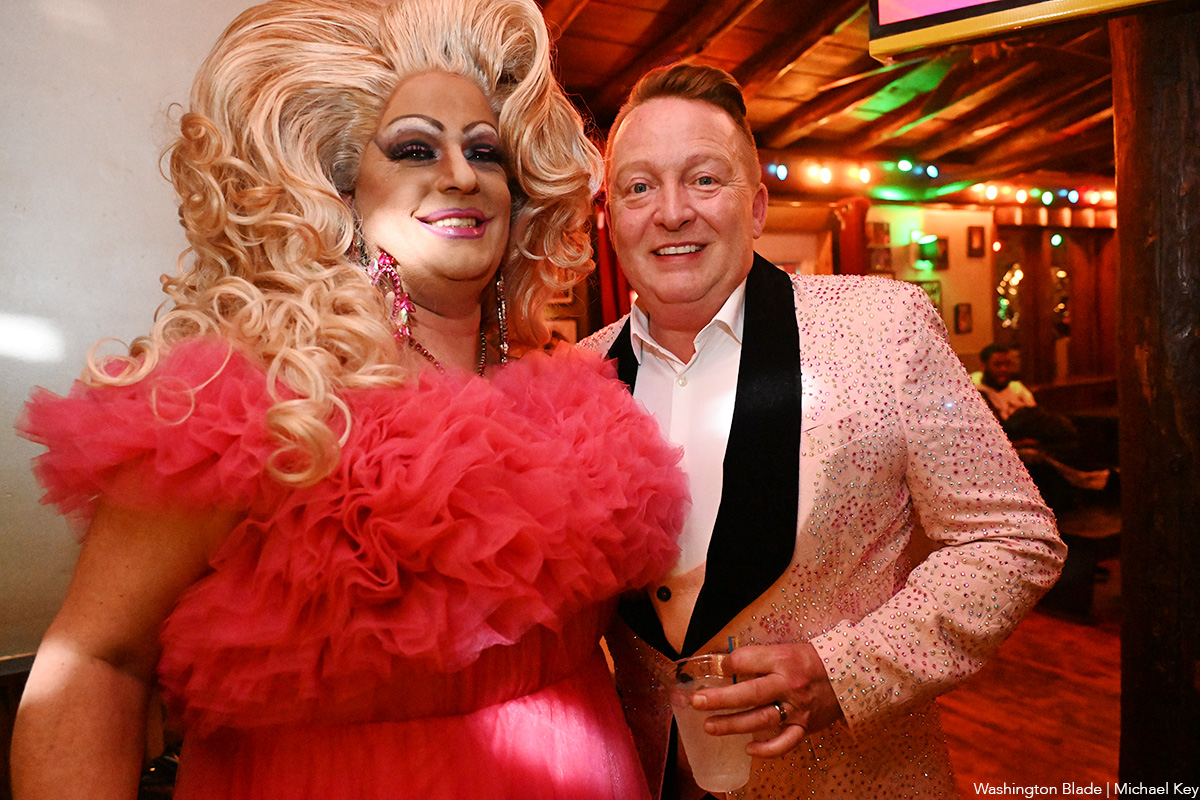
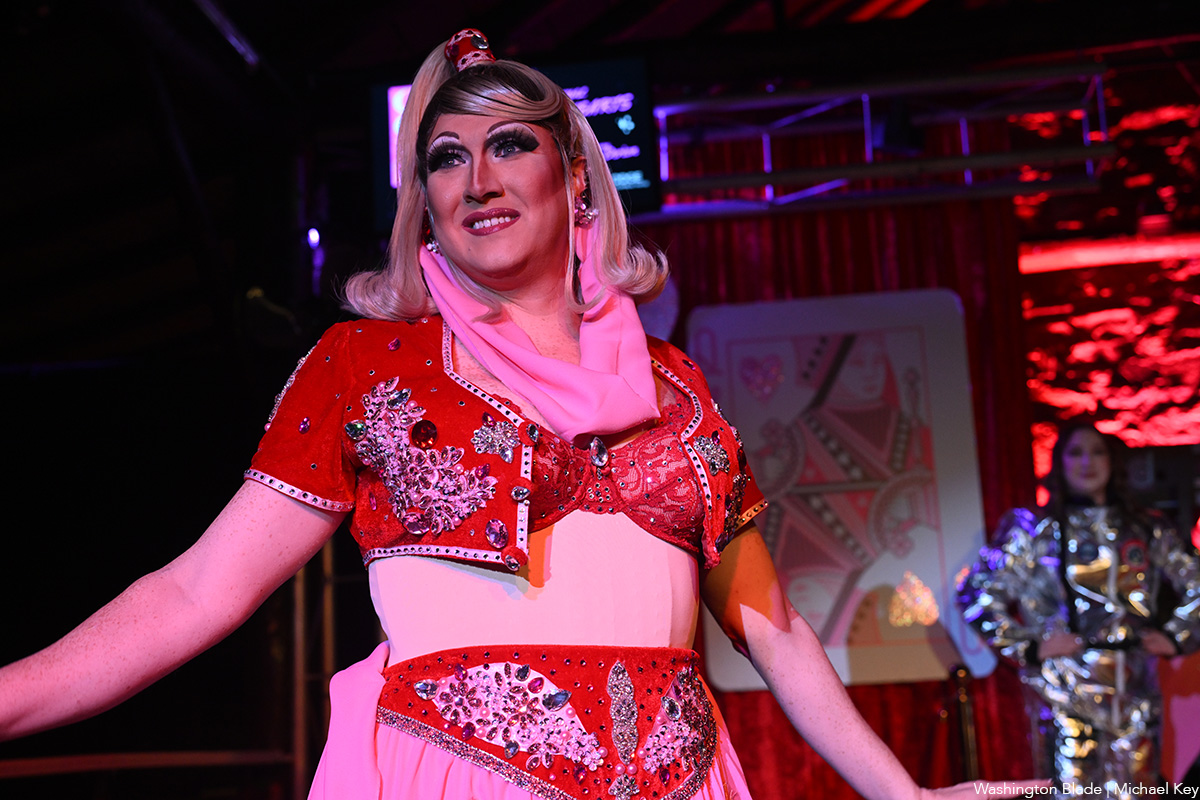
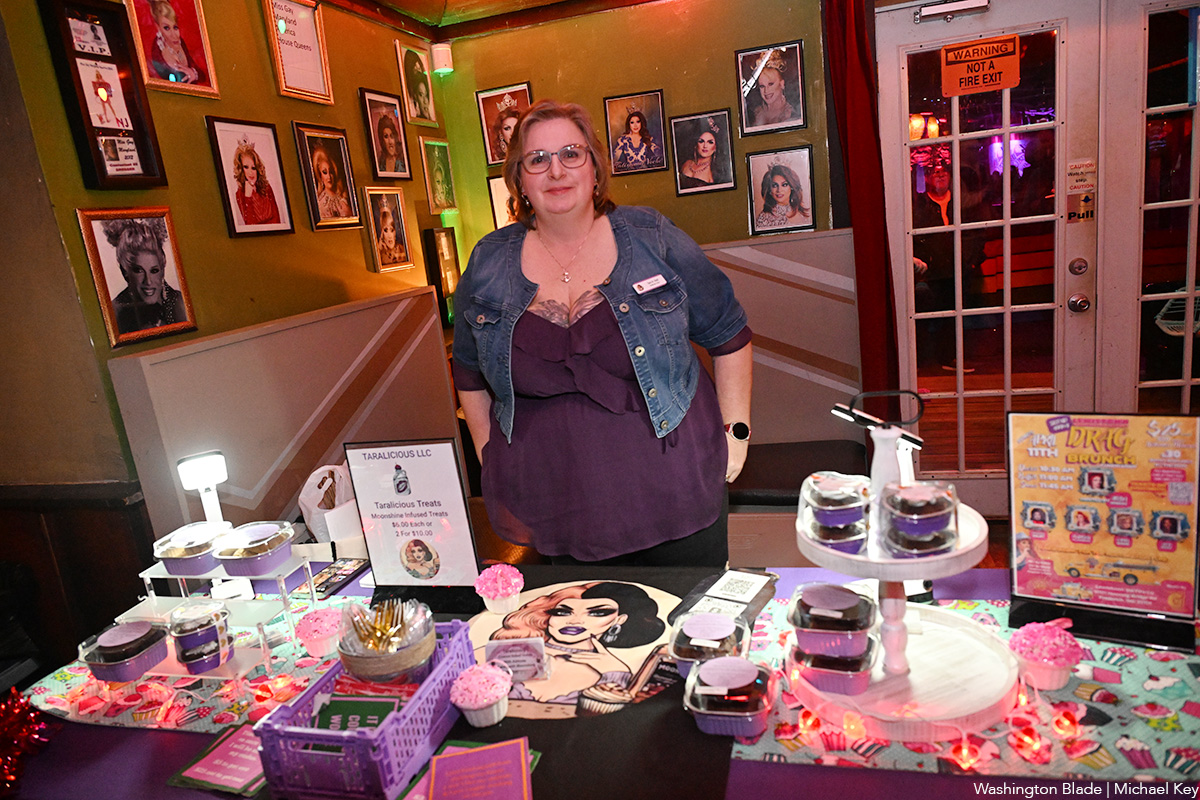
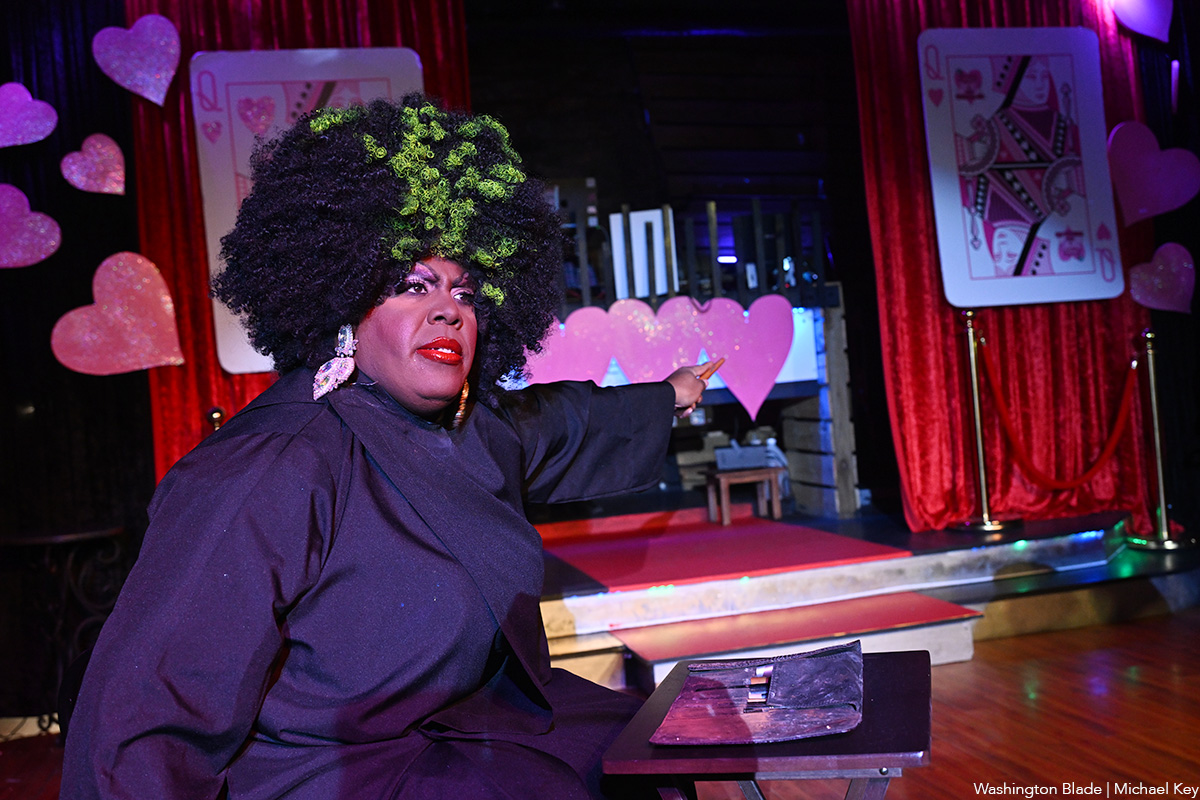
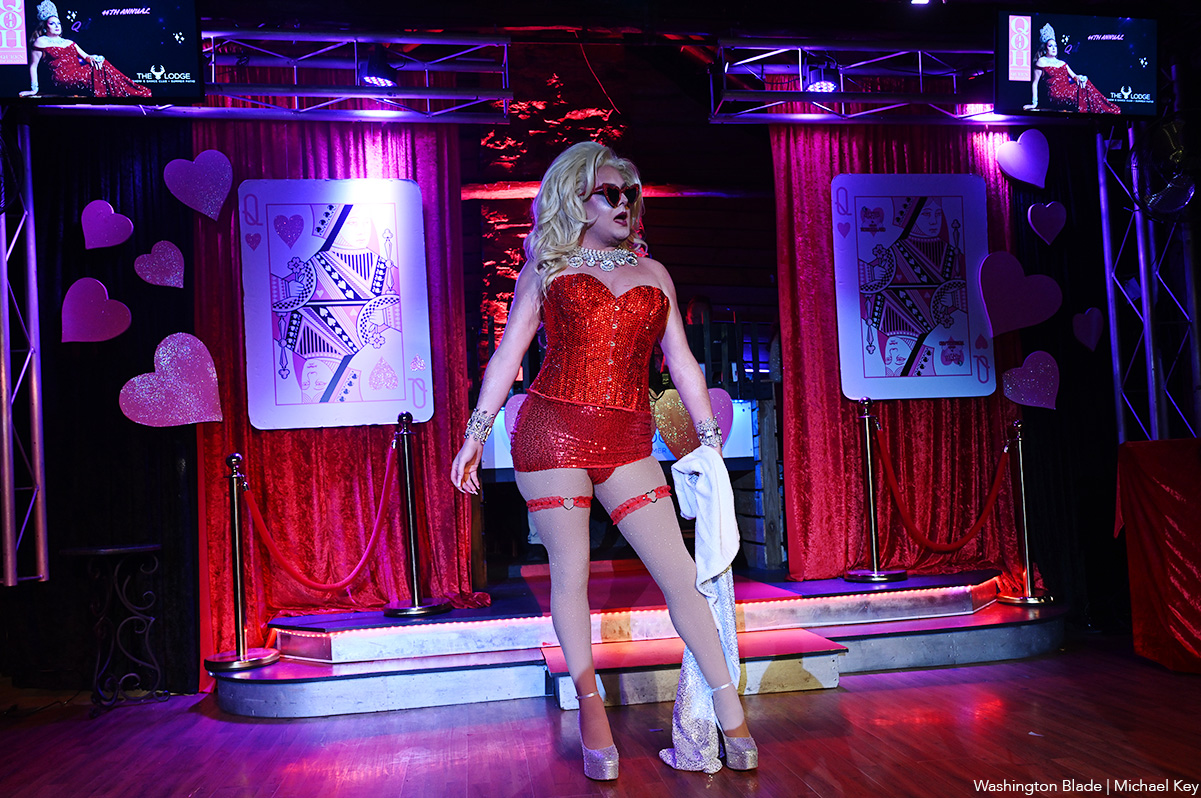
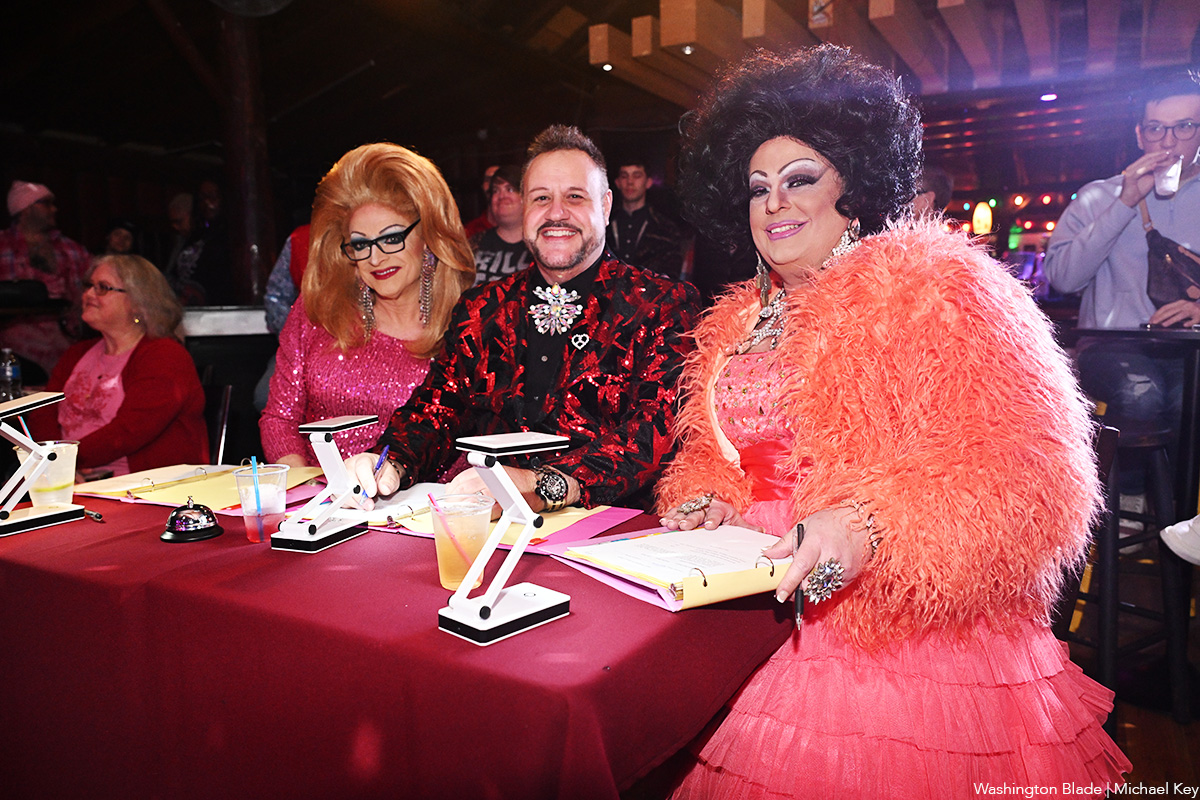
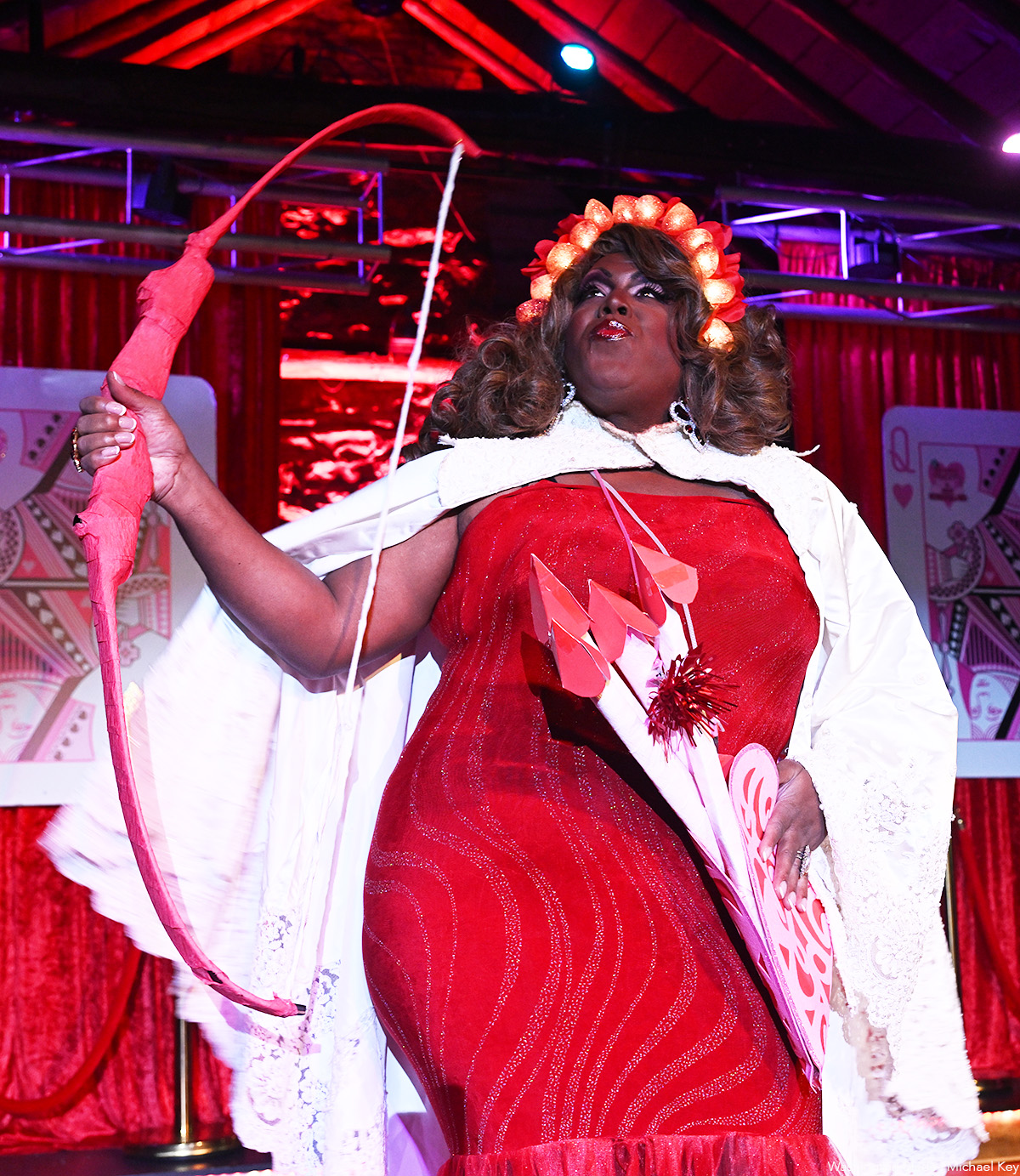
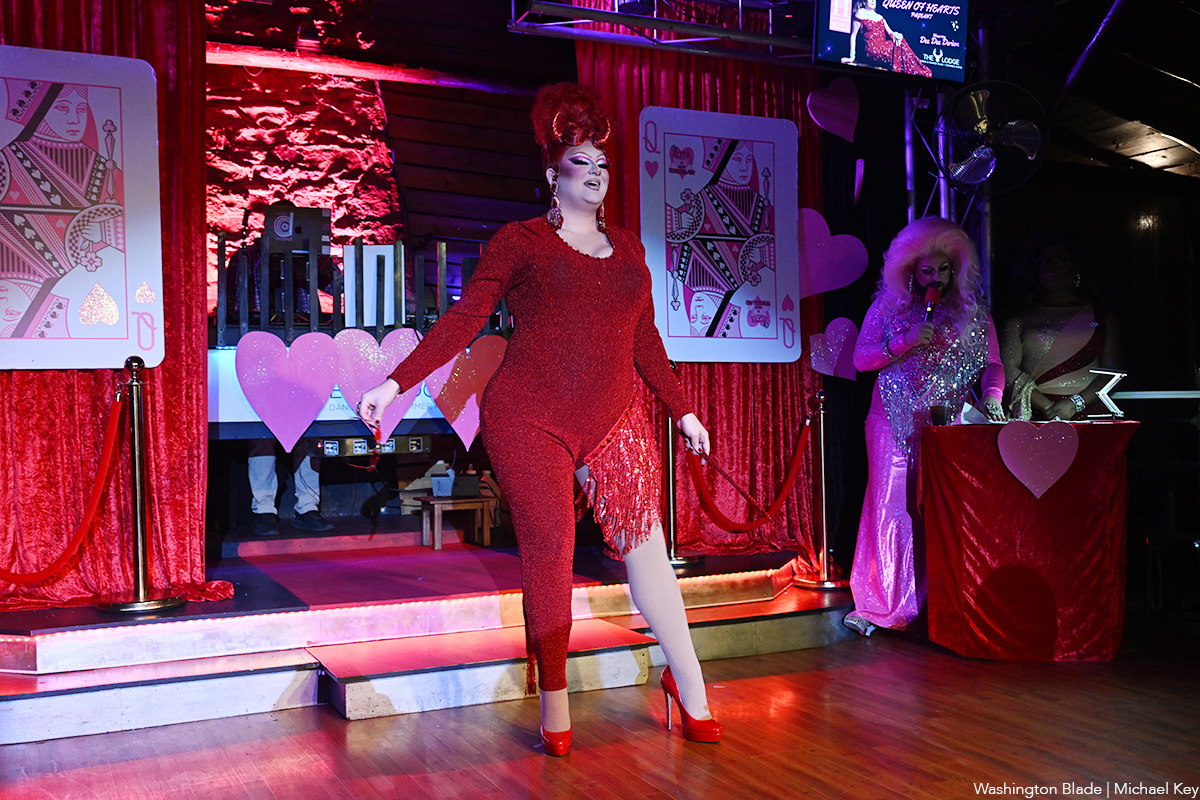
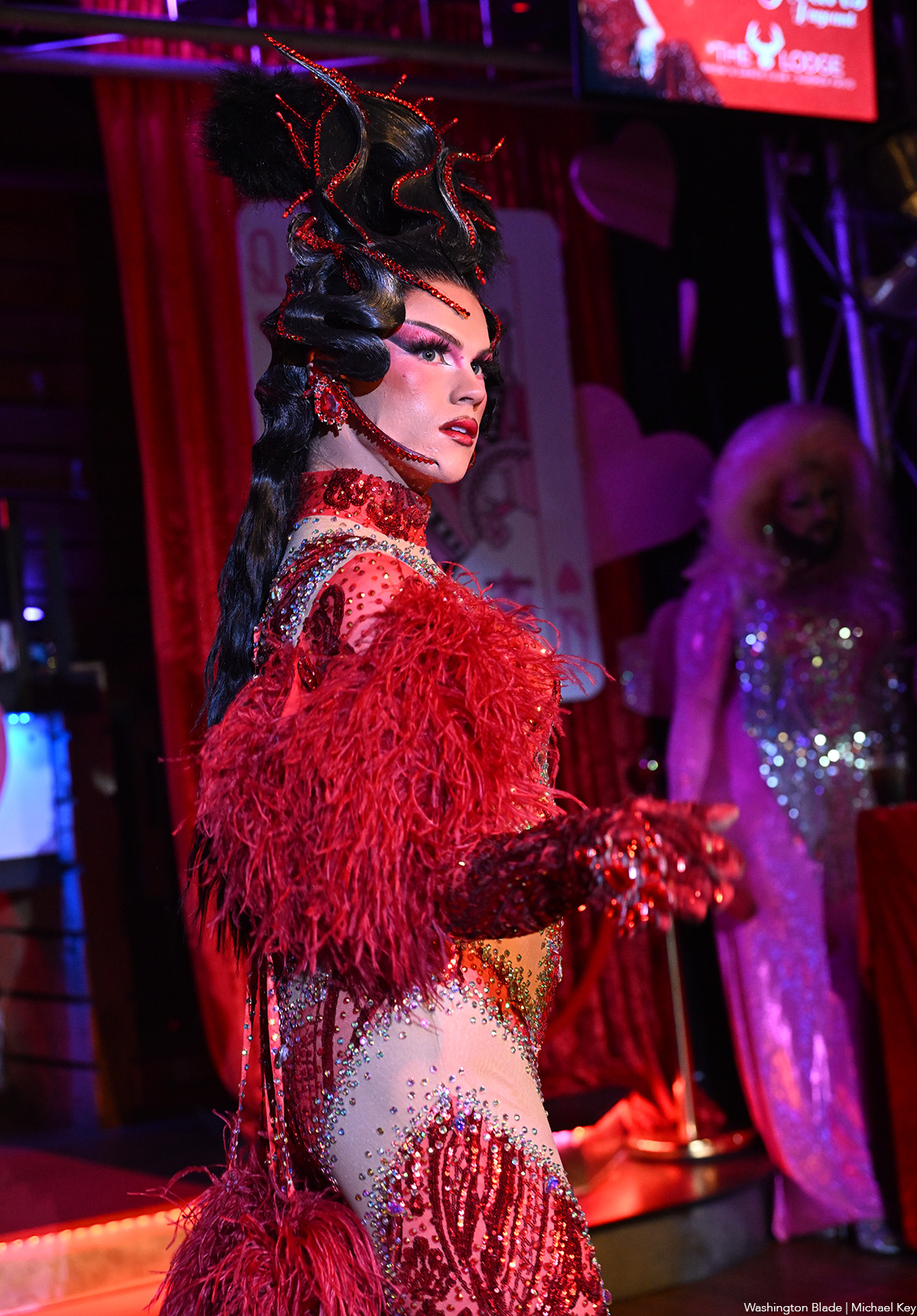
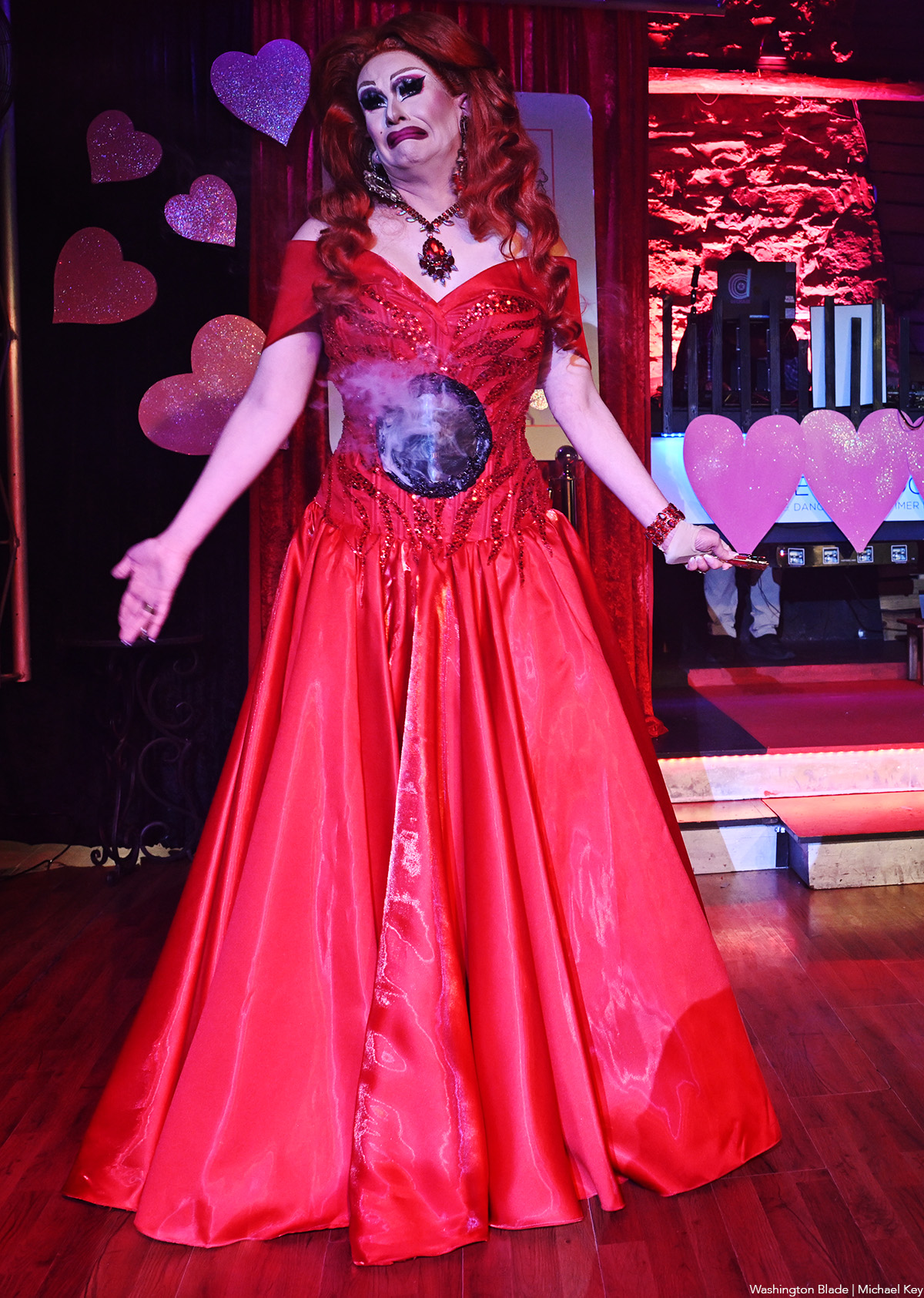
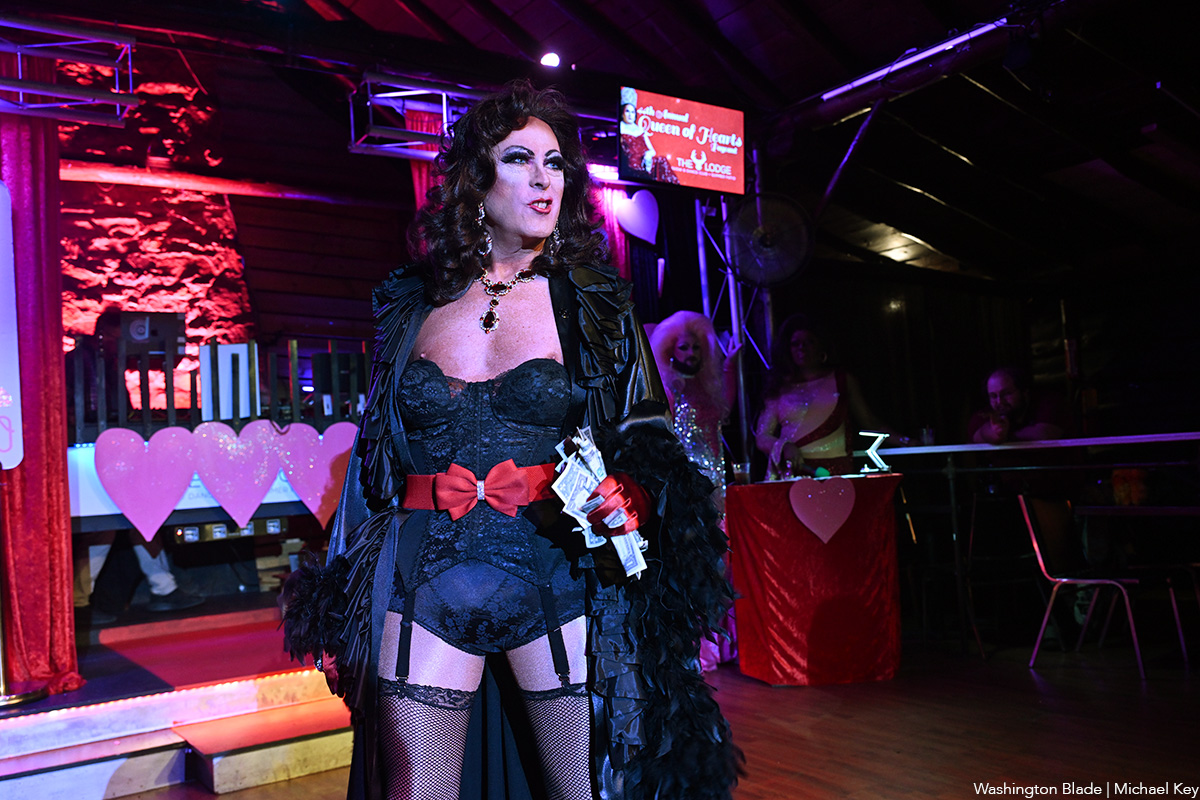
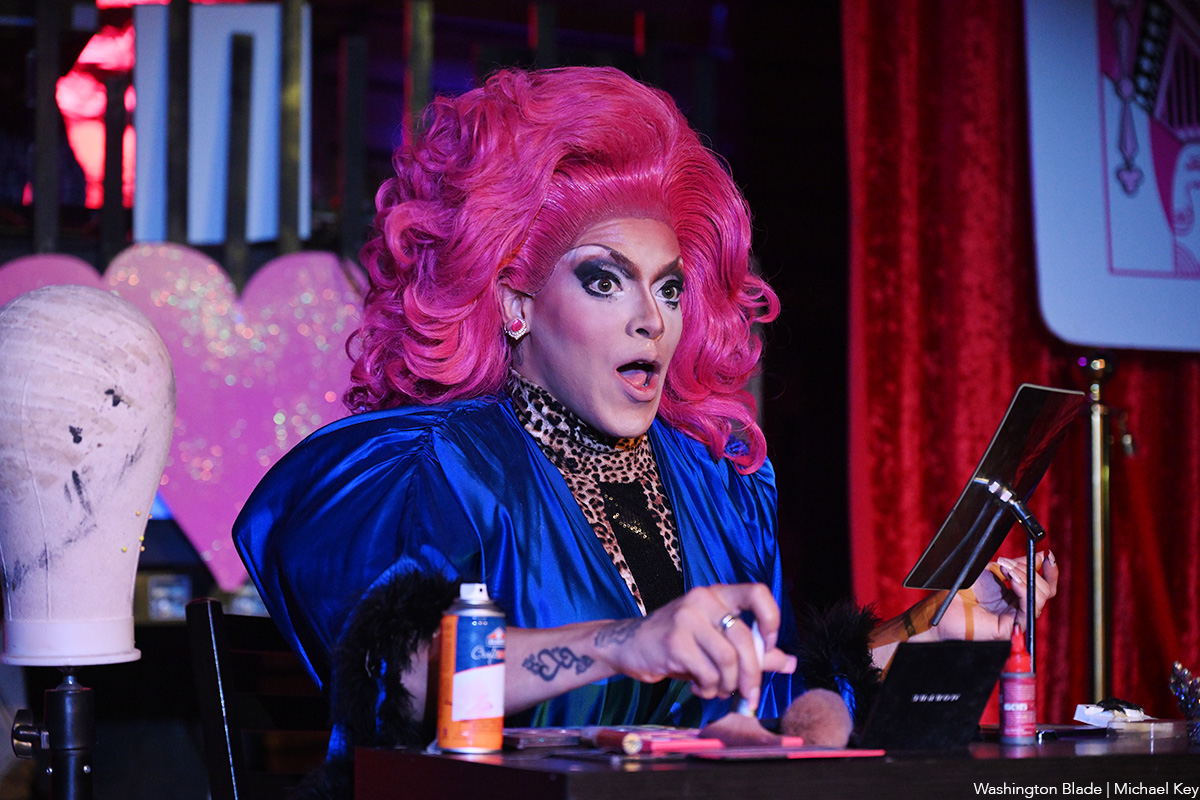
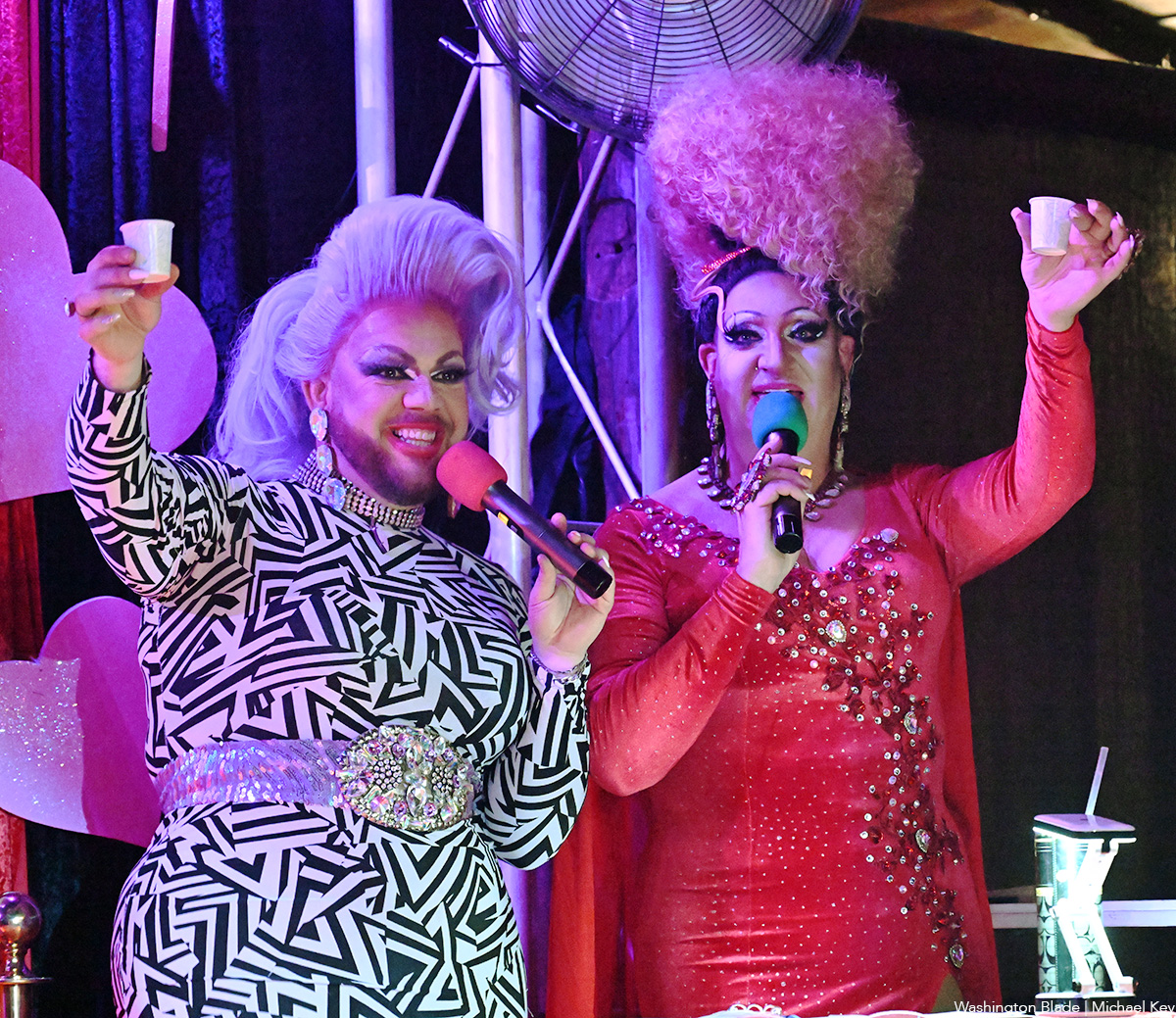
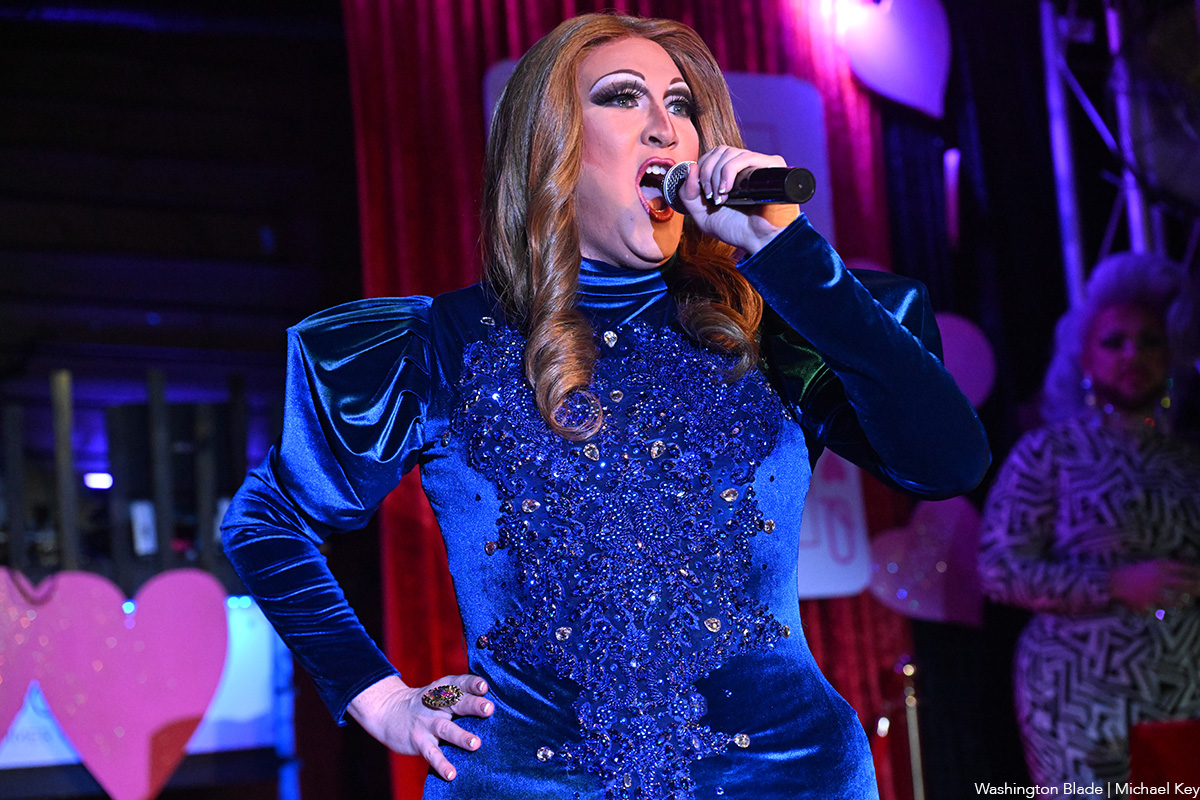
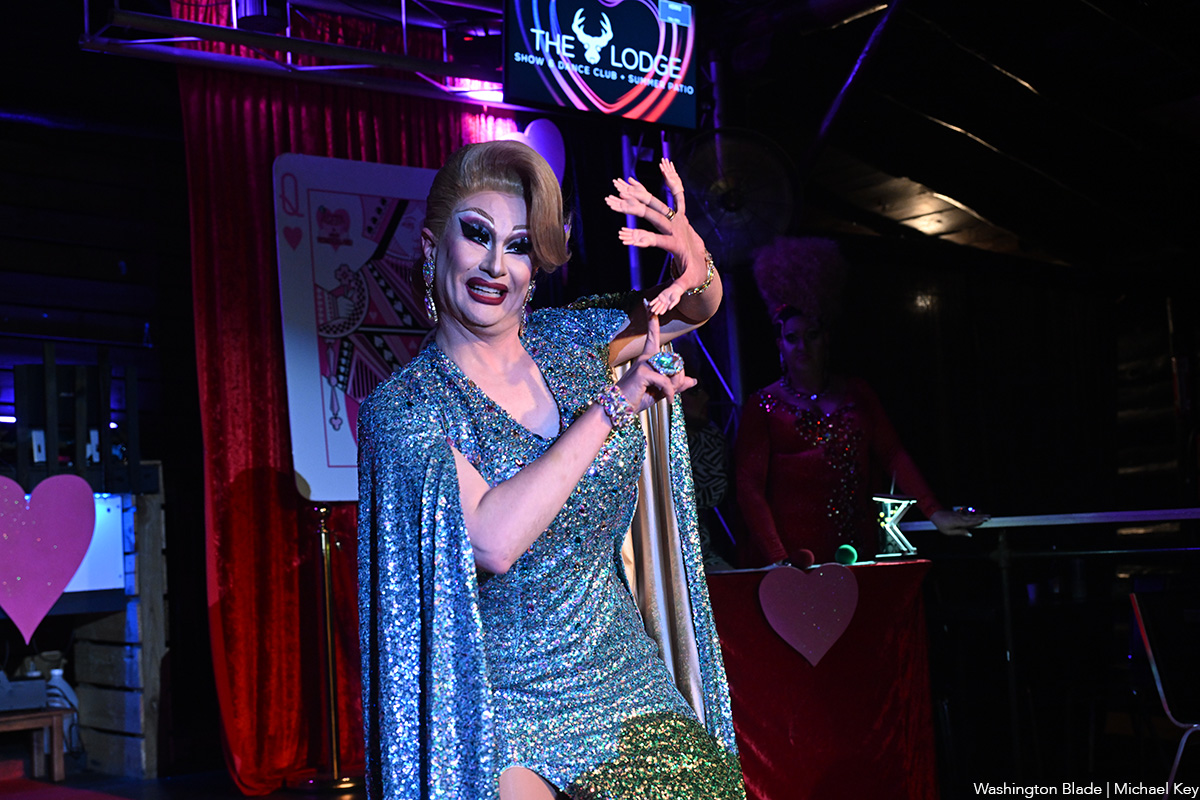
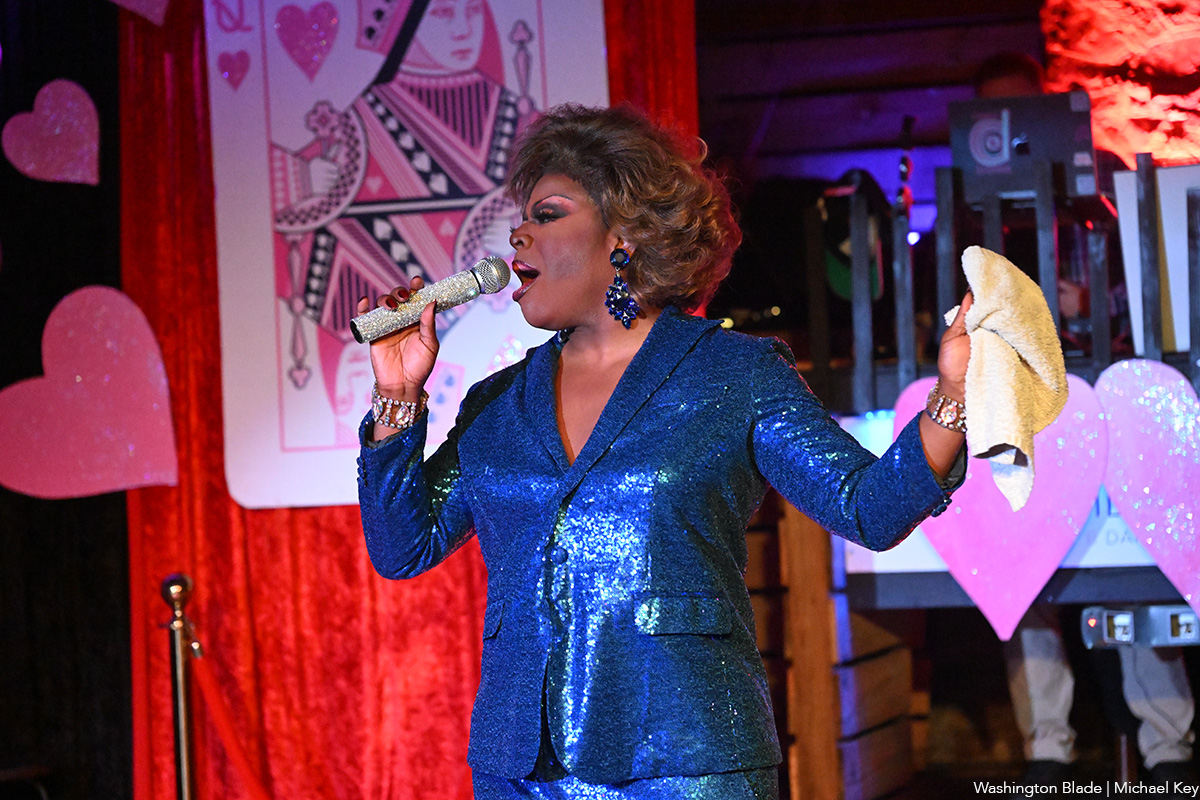
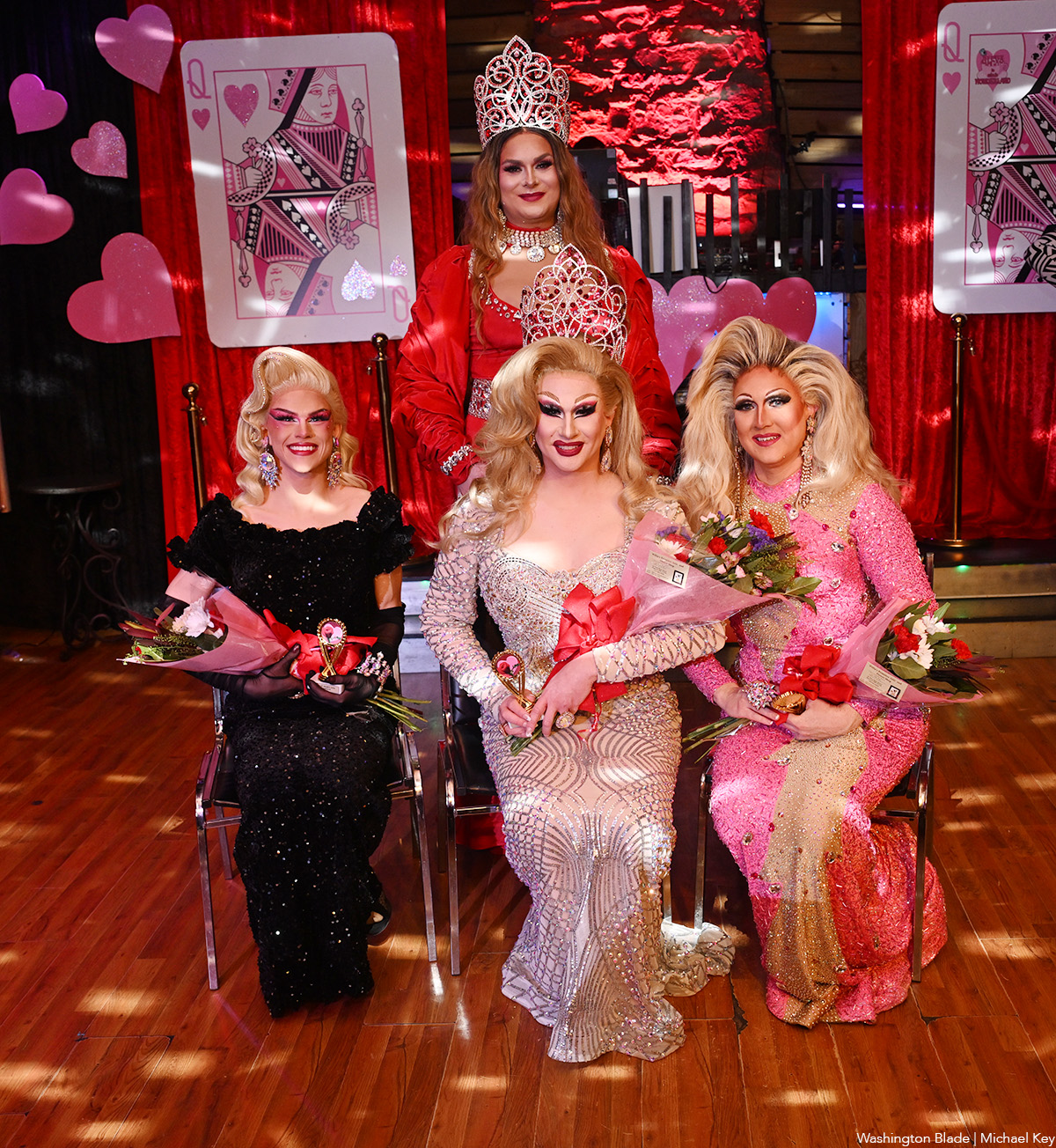
View on Threads
-

 Mexico5 days ago
Mexico5 days agoUS Embassy in Mexico issues shelter in place order for Puerto Vallarta
-

 Real Estate5 days ago
Real Estate5 days ago2026: prices, pace, and winter weather
-

 Theater5 days ago
Theater5 days agoJosé Zayas brings ‘The House of Bernarda Alba’ to GALA Hispanic Theatre
-

 Netherlands4 days ago
Netherlands4 days agoRob Jetten becomes first gay Dutch prime minister

